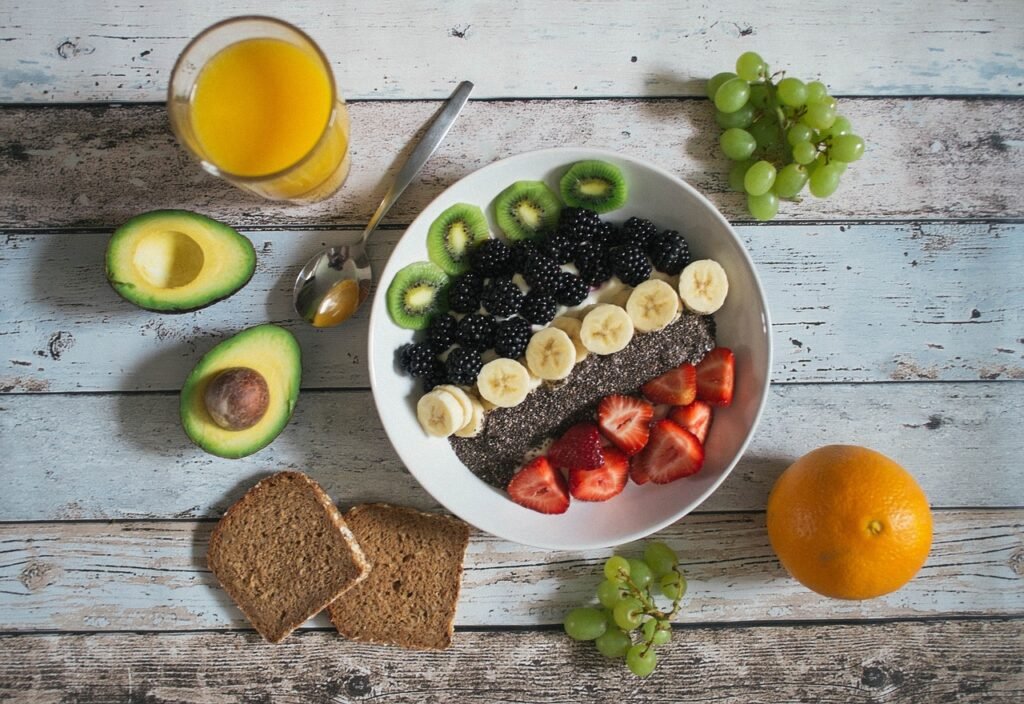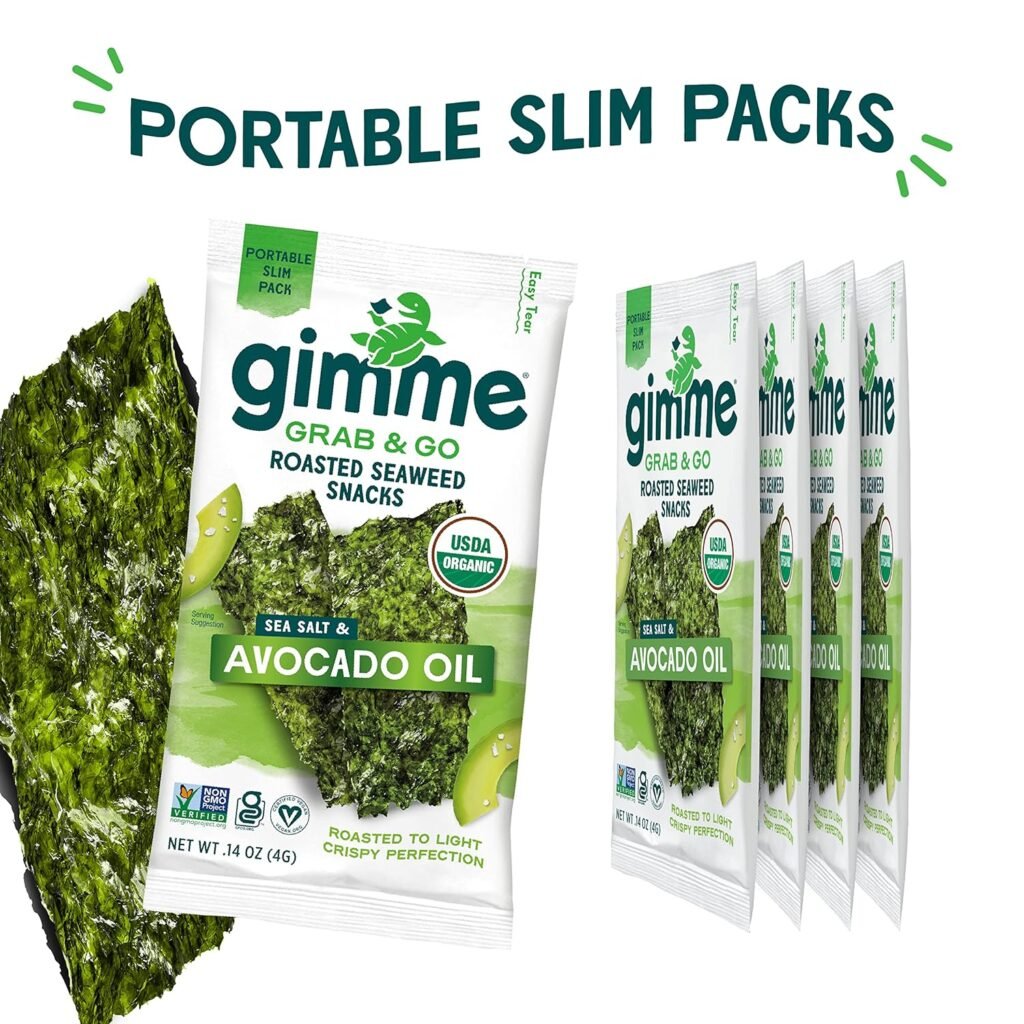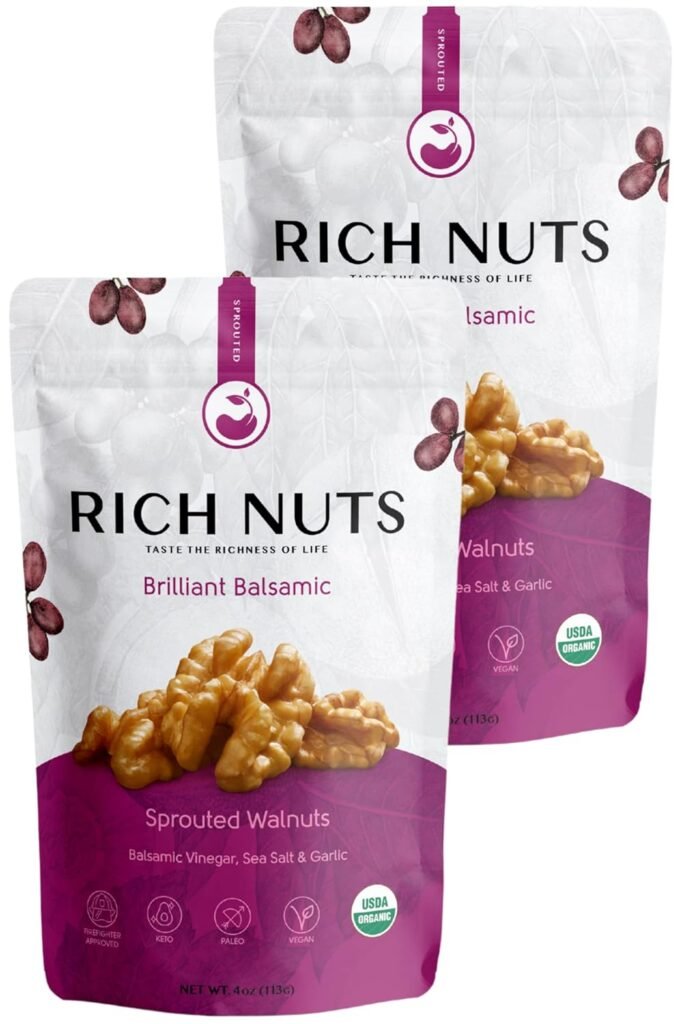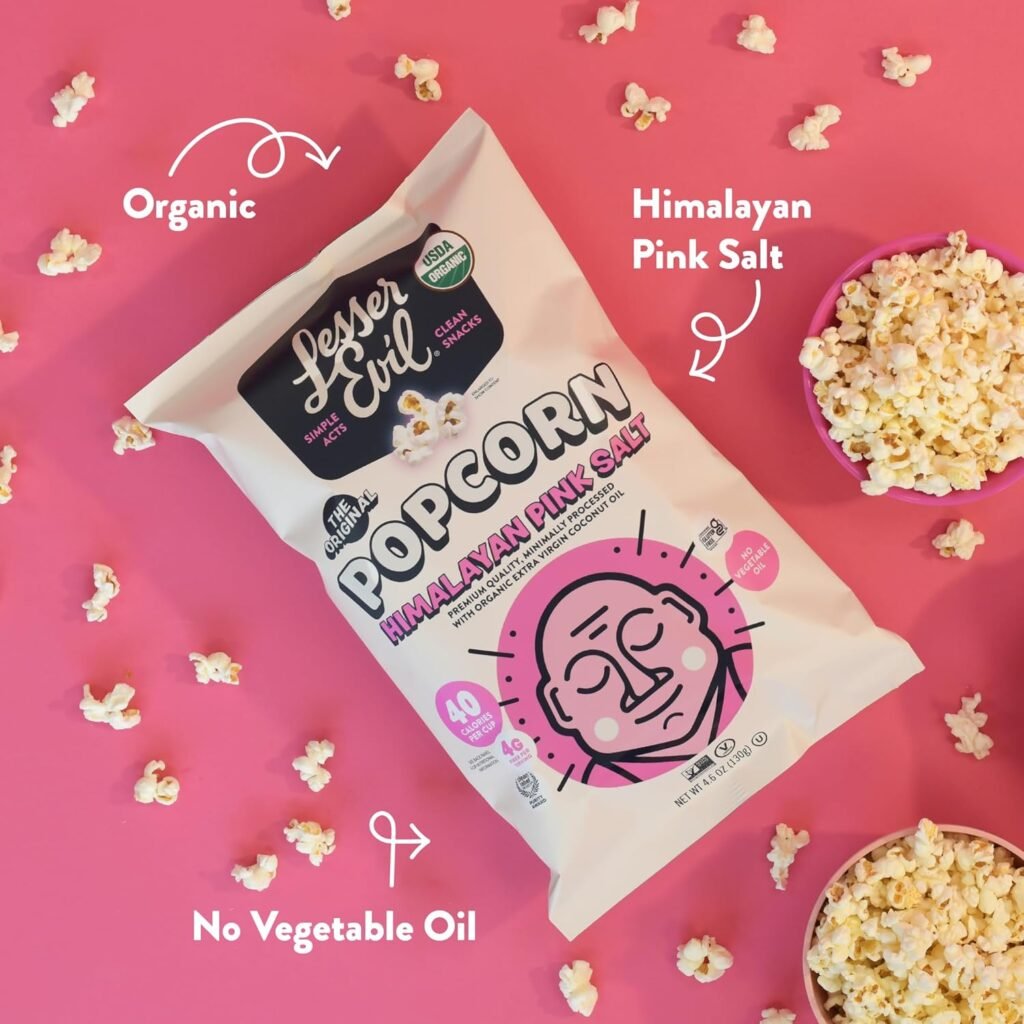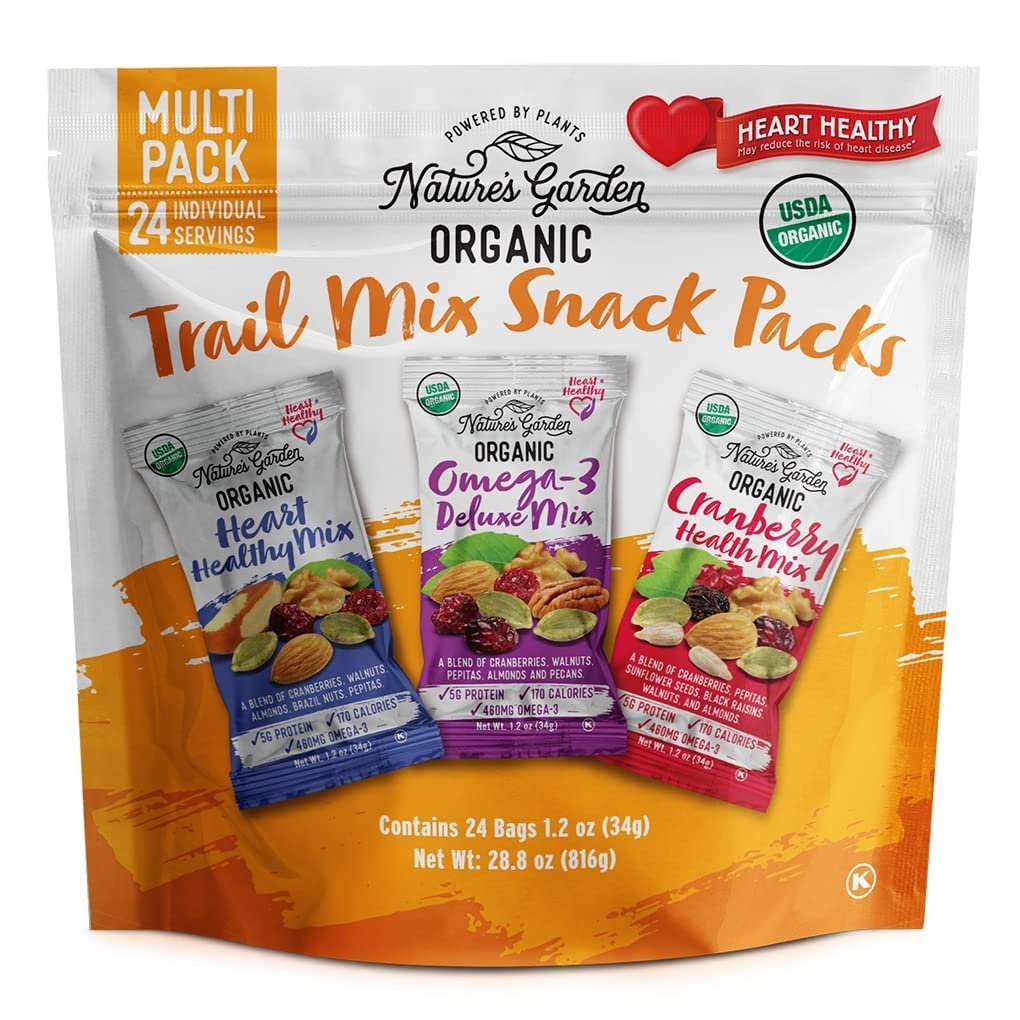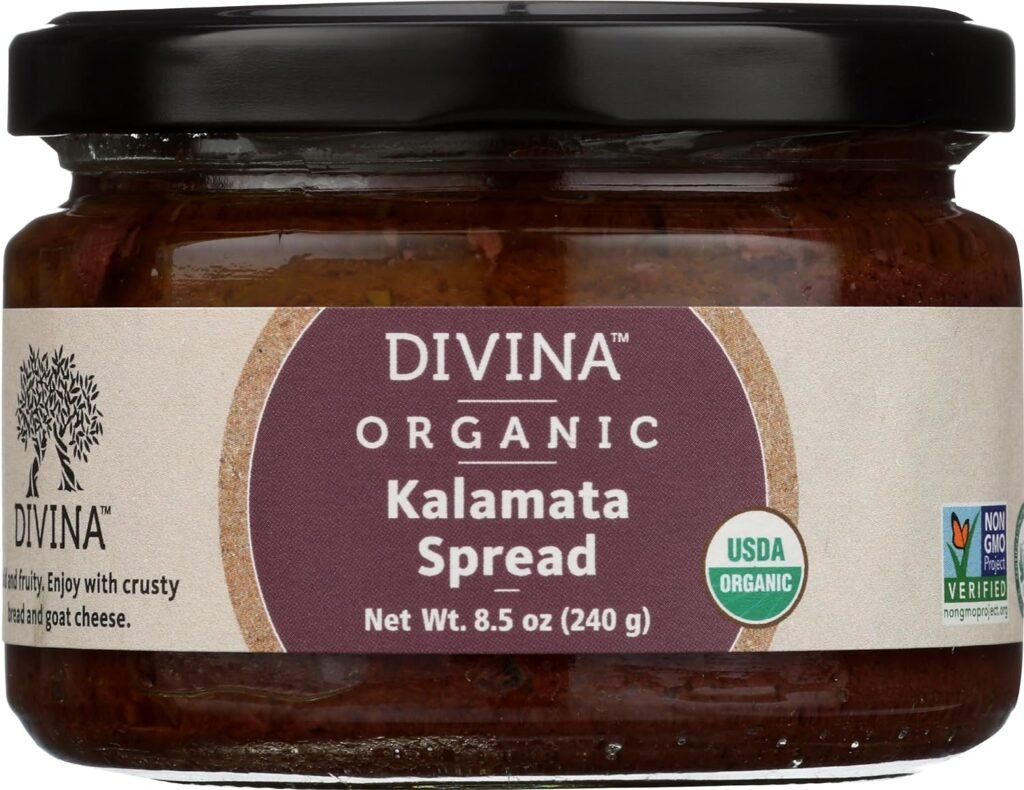This post may contain affiliate links. Which means I may receive a commission for purchases made through links, at no cost to you. I will only recommend products that I have personally used. Learn more on my Disclaimer Page and Privacy Policy Page
Mixed Nuts,Greek Yogurt with Berries,Vegetable Sticks with Hummus,Popcorn,Hard-Boiled Eggs, Nut Butter Rice Crackers and Avocado..
Mixed nuts are considered a nutritious snack because they offer a wide array of health benefits.
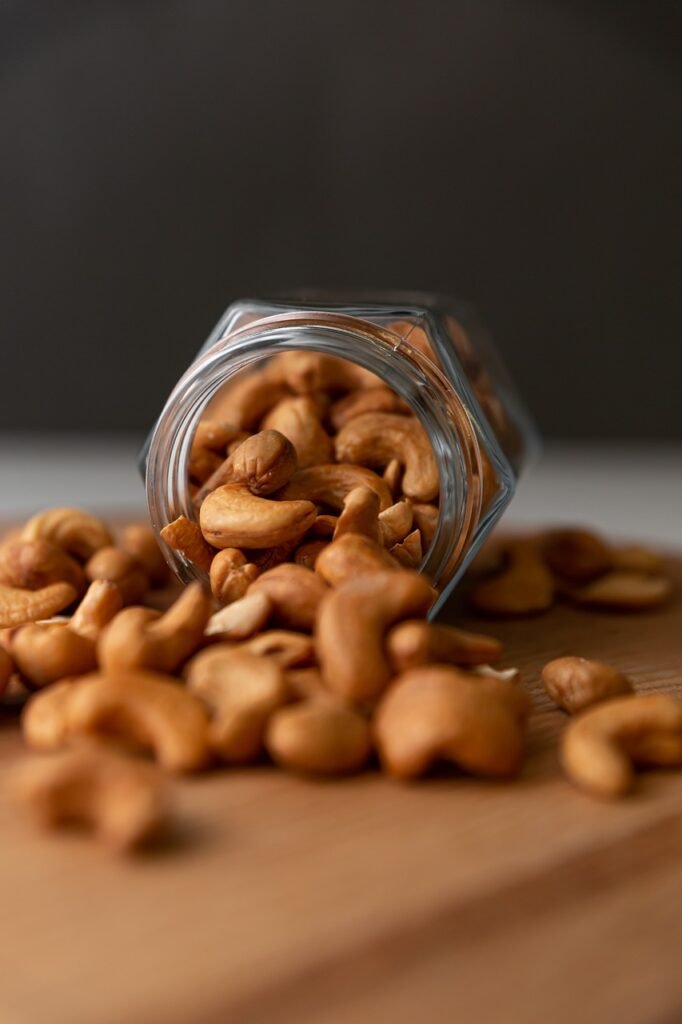
- Rich in Healthy Fats: Nuts are high in unsaturated fats, including monounsaturated and polyunsaturated fats, which are beneficial for heart health. These fats help lower LDL (bad) cholesterol levels and reduce the risk of heart disease when consumed as part of a balanced diet.
- Good Source of Protein: Nuts are a plant-based source of protein, making them an excellent option for vegetarians and vegans. Protein is essential for building and repairing tissues, supporting muscle health, and keeping you feeling full and satisfied between meals.
- High in Fiber: Nuts are rich in dietary fiber, which aids digestion, promotes gut health, and helps regulate blood sugar levels. Fiber also contributes to feelings of fullness and can assist with weight management by preventing overeating.
- Loaded with Vitamins and Minerals: Nuts contain a variety of vitamins and minerals, including magnesium, potassium, calcium, vitamin E, and B vitamins. These nutrients play crucial roles in maintaining overall health, supporting immune function, and protecting against chronic diseases.
- Antioxidant Properties: Many nuts are rich in antioxidants, such as vitamin E, selenium, and flavonoids, which help neutralize harmful free radicals in the body and reduce oxidative stress. Antioxidants play a key role in reducing inflammation and lowering the risk of chronic diseases like cancer and heart disease.
- Promote Weight Management: Despite being calorie-dense, studies have shown that nuts may actually help with weight management when consumed in moderation. Their combination of protein, fiber, and healthy fats helps increase feelings of fullness and satiety, potentially reducing overall calorie intake.
- Versatile and Convenient: Mixed nuts are a convenient and portable snack option that requires no preparation and can be easily taken on-the-go. They provide a quick and satisfying energy boost and can be enjoyed as a standalone snack or added to salads, yogurt, or trail mix for extra flavor and nutrition.
Greek Yogurt

Greek yogurt is often considered a superior snack due to its numerous health benefits and versatile nature:
- High Protein Content: Greek yogurt is renowned for its high protein content, making it a satisfying and filling snack option. Protein helps to promote satiety, regulate appetite, and support muscle growth and repair, making Greek yogurt an excellent choice for those looking to maintain or build muscle mass.
- Rich in Probiotics: Greek yogurt contains probiotics, which are beneficial bacteria that support gut health and digestion. Probiotics help to maintain a healthy balance of gut flora, improve digestion, and enhance immune function. Consuming Greek yogurt regularly can contribute to a healthy digestive system and overall well-being.
- Low in Carbohydrates: Compared to regular yogurt, Greek yogurt typically contains fewer carbohydrates and sugars. This makes it a suitable option for those following low-carb or ketogenic diets, as well as individuals seeking to manage their blood sugar levels or reduce their overall carbohydrate intake.
- Source of Calcium and Other Nutrients: Greek yogurt is a good source of calcium, a mineral essential for bone health, muscle function, and nerve transmission. It also provides other important nutrients such as potassium, magnesium, and vitamin B12, which play key roles in various bodily functions.
Fruits and Berries

- High in Antioxidants: Berries are rich in antioxidants, including flavonoids, anthocyanins, and vitamin C, which help neutralize harmful free radicals in the body. Antioxidants play a key role in reducing oxidative stress, inflammation, and the risk of chronic diseases such as heart disease, cancer, and neurodegenerative disorders.
- Low in Calories and Sugar: Berries are generally low in calories and sugar compared to other fruits, making them a suitable option for those watching their calorie and carbohydrate intake. This makes berries a preferred choice for individuals looking to manage their weight, blood sugar levels, or overall carbohydrate consumption.
- High in Fiber: Berries are an excellent source of dietary fiber, including both soluble and insoluble fiber. Fiber helps promote digestive health, regulate bowel movements, and support feelings of fullness and satiety, which can aid in weight management and prevent overeating.
- Rich in Vitamins and Minerals: Berries are packed with essential vitamins and minerals, including vitamin C, vitamin K, manganese, and potassium. These nutrients play various roles in the body, such as supporting immune function, bone health, blood clotting, and electrolyte balance.
- Anti-Inflammatory Properties: Some berries, such as blueberries, raspberries, and strawberries, contain compounds with anti-inflammatory properties. Regular consumption of these berries may help reduce inflammation in the body, which is linked to the development of chronic diseases and age-related conditions.
- Brain Health Benefits: Research suggests that certain compounds found in berries, such as flavonoids and anthocyanins, may have protective effects on brain health and cognitive function. Regular consumption of berries has been associated with improved memory, focus, and overall brain health, especially in older adults.
Vegetable Sticks and Hummus

- Nutrient Density: Veggie sticks, such as carrots, cucumbers, bell peppers, and celery, are rich in essential vitamins, minerals, and antioxidants. They provide a wide range of nutrients, including vitamin A, vitamin C, potassium, and fiber, which support overall health, immune function, and digestion. Hummus, made from chickpeas, is also nutrient-dense, providing protein, fiber, vitamins, and minerals.
- Balanced Macronutrients: Veggie sticks and hummus offer a balanced combination of macronutrients, including carbohydrates, protein, and healthy fats. The vegetables provide carbohydrates in the form of fiber-rich complex carbohydrates, while hummus adds protein and healthy fats from the chickpeas and olive oil. This balanced macronutrient profile helps keep you feeling full and satisfied between meals.
- Satiety and Weight Management: The fiber and protein found in veggie sticks and hummus contribute to feelings of satiety and can help prevent overeating. By choosing a snack that fills you up and satisfies your hunger, you’re less likely to reach for unhealthy, calorie-dense foods later on. This can support weight management and help you maintain a healthy body weight.
- Gut Health Benefits: Both veggie sticks and hummus contain dietary fiber, which is essential for promoting gut health and regular bowel movements. Fiber helps nourish the beneficial bacteria in your gut, supporting a healthy microbiome and reducing the risk of digestive issues like constipation and bloating.
Popcorn

- Whole Grain: Popcorn is a whole grain, meaning it contains all parts of the grain kernel – the bran, germ, and endosperm. Whole grains are rich in fiber, vitamins, minerals, and antioxidants, making them an important part of a balanced diet. Consuming whole grains like popcorn has been linked to a reduced risk of heart disease, stroke, type 2 diabetes, and certain cancers.
- Low in Calories: Air-popped popcorn is naturally low in calories, with about 30 calories per cup. Compared to many other snack foods like chips or candy, popcorn provides a satisfying volume without packing on excess calories. This makes it a great option for those looking to manage their weight or calorie intake.
- High in Fiber: Popcorn is a good source of dietary fiber, with around 3-4 grams of fiber per serving. Fiber helps promote digestive health, regulate bowel movements, and support feelings of fullness and satiety. Including fiber-rich foods like popcorn in your diet can help you maintain a healthy weight, improve cholesterol levels, and reduce the risk of constipation and other digestive issues.
- Nutrient-Dense: While popcorn is low in calories, it’s also packed with essential nutrients such as vitamins B1 (thiamine), B3 (niacin), B6, and minerals like manganese and magnesium. These nutrients play important roles in energy metabolism, nerve function, bone health, and antioxidant activity.
- Antioxidant Properties: Popcorn contains polyphenol antioxidants, which help neutralize harmful free radicals in the body and reduce oxidative stress. Some studies suggest that the antioxidants found in popcorn may have anti-inflammatory and anti-cancer properties, although more research is needed to fully understand their effects.
- Gluten-Free and Non-GMO: Popcorn is naturally gluten-free and non-GMO (genetically modified organism), making it a safe and suitable snack option for those with celiac disease or gluten sensitivity. It’s also free from artificial additives, preservatives, and unhealthy trans fats commonly found in processed snack foods.
Hard Boiled Eggs

- High-Quality Protein: Eggs are a complete protein source, meaning they contain all nine essential amino acids that the body needs. Protein is essential for muscle repair and growth, as well as for supporting overall health and vitality. Hard-boiled eggs provide a convenient and portable source of high-quality protein, making them an excellent snack choice for fueling your body between meals.
- Nutrient Density: Hard-boiled eggs are packed with essential nutrients, including vitamins, minerals, and antioxidants. They are particularly rich in vitamin B12, which is important for nerve function and red blood cell production, as well as choline, which is essential for brain health and development. Eggs also contain significant amounts of vitamin A, vitamin D, vitamin E, and various B vitamins, along with minerals like iron, zinc, and selenium.
- Rich in Healthy Fats: While eggs do contain some saturated fat, they are also a good source of healthy unsaturated fats, including monounsaturated and polyunsaturated fats. These fats are beneficial for heart health and can help lower LDL (bad) cholesterol levels when consumed as part of a balanced diet. The fats in eggs also help increase satiety and keep you feeling full and satisfied for longer periods, making them an excellent snack for managing hunger and preventing overeating.
- Low in Calories: Hard-boiled eggs are relatively low in calories compared to many other snack options, making them a suitable choice for those looking to manage their calorie intake or lose weight. One large hard-boiled egg contains approximately 70 calories, making it a satisfying and nutritious snack that won’t derail your diet goals.
Nut Butter and Rice Cakes

- Balanced Macronutrients: Nut butter and rice cakes provide a balanced combination of macronutrients, including carbohydrates, protein, and healthy fats. Rice cakes are a low-calorie carbohydrate source, while nut butter adds protein, healthy fats, and additional flavor. This combination helps keep you feeling satisfied and energized between meals.
- Protein and Satiety: Nut butter is rich in protein, which is essential for muscle repair and growth, as well as for keeping you feeling full and satiated. Protein helps stabilize blood sugar levels and prevents energy crashes, making it an important component of a healthy snack. Pairing nut butter with rice cakes provides a convenient way to boost your protein intake and support overall health and vitality.
- Healthy Fats: Nut butter contains healthy unsaturated fats, including monounsaturated and polyunsaturated fats, which are beneficial for heart health and cognitive function. These fats help reduce LDL (bad) cholesterol levels and promote HDL (good) cholesterol levels, lowering the risk of heart disease and improving overall cardiovascular health.
- Nutrient Density: Nut butter is packed with essential nutrients, including vitamins, minerals, and antioxidants. Depending on the type of nut used, nut butter may provide significant amounts of vitamin E, magnesium, potassium, and other micronutrients that support overall health and well-being.
- Fiber Content: Both nut butter and rice cakes contain dietary fiber, which supports digestive health, regulates bowel movements, and promotes feelings of fullness and satiety. Fiber helps slow down digestion and absorption, preventing spikes in blood sugar levels and keeping you feeling satisfied for longer periods.
Avocado

- Healthy Fats: Unlike many snacks that are high in unhealthy saturated or trans fats, avocado contains predominantly heart-healthy monounsaturated fats, particularly oleic acid. These fats help lower LDL (bad) cholesterol levels and raise HDL (good) cholesterol levels, reducing the risk of heart disease and supporting overall cardiovascular health.
- Nutrient Density: Avocado is packed with essential vitamins, minerals, and antioxidants, making it a nutrient-dense snack option. It provides a wide range of nutrients, including potassium, vitamin K, vitamin E, vitamin C, folate, and dietary fiber, which support various aspects of health, including heart health, immune function, bone health, and digestive health.
- Fiber Content: Avocado is an excellent source of dietary fiber, both soluble and insoluble. Fiber supports digestive health by promoting regular bowel movements, preventing constipation, and reducing the risk of digestive disorders like diverticulosis. It also helps regulate blood sugar levels, improve cholesterol levels, and support weight management by promoting feelings of fullness and reducing overall calorie intake.
- Low in Sugar and Carbohydrates: Unlike many snacks that are high in refined sugars and carbohydrates, avocado is naturally low in sugar and contains only minimal carbohydrates. This makes it a suitable option for those looking to manage their blood sugar levels, reduce their overall carbohydrate intake, or follow low-carb or ketogenic diets.

